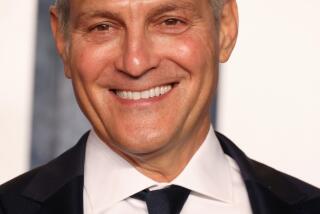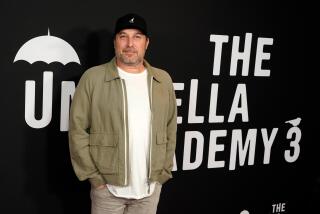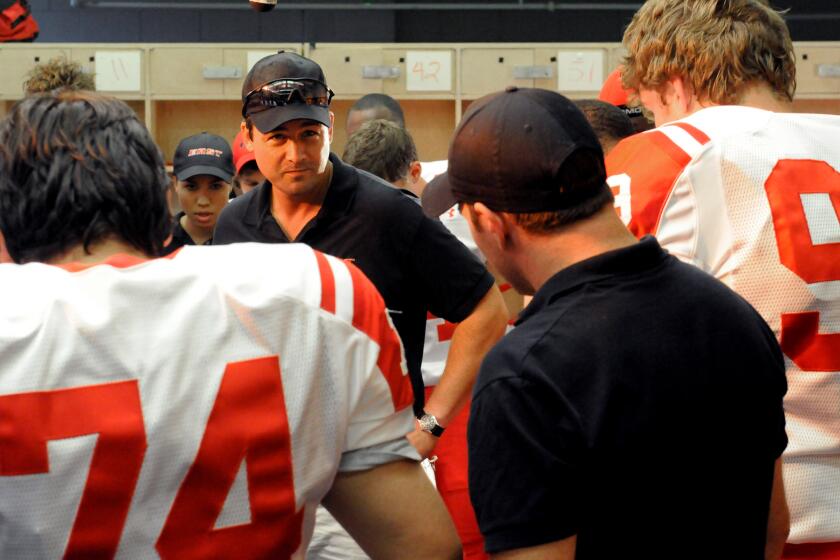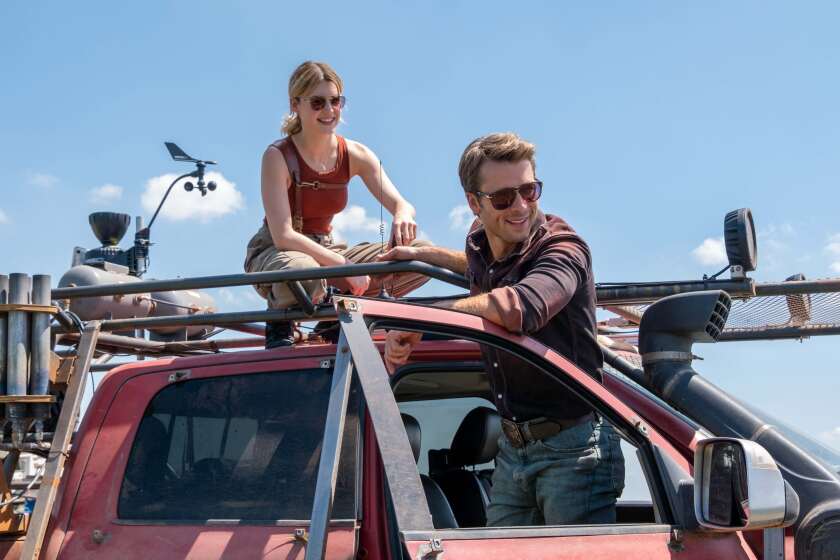Kelsey Grammer’s practice role?
In “Boss,” the new political drama on the Starz channel, Kelsey Grammer plays Tom Kane, a fictional mayor of Chicago obsessed with holding on to power while he struggles to hide a life-threatening illness. Before it launched, Grammer, who is also an executive producer on the series, met with two well-known power brokers — William Morris Endeavor agent Ari Emanuel, who had some script notes, and Ari’s brother, Rahm Emanuel, the actual mayor of Chicago.
“I think he was mainly interested in making sure I wasn’t doing some kind of a hit piece on him,” said Grammer about President Obama’s former chief of staff. “I reassured him that the character has nothing to do with him. That may or may not have been good news — they all have a sense of ego, so maybe he was sort of hurt.” Grammer spoke with The Envelope about crafting his role on the show, which has landed two Golden Globe nominations, for lead actor and drama series, and his own political ambitions.
Given how much drama and scope “Boss” packs into each episode, they’re shot really fast — usually in just eight days, using a kind of documentary lighting and camera style. How does the speed affect your performance?
I actually love working fast — those limitations can be freeing. There’s an honesty to it — you just go with your gut and jump into it. But you need people who are experienced, who can access themselves as quickly as possible. Firing on your first impressions can be really effective.
There’s a scene in the first episode where you get really big and ferocious, chewing out that guy with expletives in your office and forcing him to the ground by twisting his ear. Was it your idea to go so big with it?
Well, when the lines are “I’ve been on my ... knees ... debasing myself for this,” you don’t think of that as a small performance. But what it tells us is that Tom Kane is a guy who’s always functioning on five or six levels. He’s aware of what must be done to affect the right response — he needs to embarrass this guy so much that he’s angry enough to go after the other guy, who’s the real problem. There’s a part of that scene that we cut: When it’s over, Kane asks for a glass of water, and when he gets it, he turns to the others and smiles [he laughs]. But we thought, maybe that’s giving away too much. He’s a wild character. He loves what he does.
You’ve said that in some ways it’s easier to play drama than it was to play Frasier Crane on “Cheers” and “Frasier.” Can you elaborate on that?
With drama, you just get to pour it out. Tip the vessel over and out it comes. I just behave openly, in the context of what I know Tom Kane’s situation is. Of course, it requires a lot in terms of focus. But to make sure that a comedy succeeds, there’s more artifice and manipulation involved. You have to worry about the timing and how the whole cast comes together and also how to make it resonate emotionally.
In the opening scene of “Boss,” we watch Kane’s face while he hears this terrible medical news that is basically a death sentence. Watching it, I was thinking, “This is one tough dude.” Can you talk about your intention for how he will evolve from there?
His deal, his approach to life, is that he can beat anything. He’s a fighter, which is something I like about him. He has the sublime narcissism to say, “I will not give in to this.” But he’s going to find out that you can’t beat the ocean. The way he comes to terms with it is going to be what his journey is. Our original concept was to draw from the Shakespearean tragedies, where you have heroes who are grappling with their own shortcomings until the last moment of their lives, when you suddenly say, “There, he’s a fully realized human being now.” And then they’re gone. That’s what makes it tragic. I think that’s perhaps the conceit of the show, if you were going to put a finger on it.
Does it frustrate you that the audience for a pay-cable network like Starz is so much smaller than when you were on network TV?
It doesn’t frustrate me at all. People will find it. Word of mouth is pretty effective. And we’ve only been on for eight episodes. It’s a dense piece; it takes time for people to wrap their heads around it. I think we’ll have a hearty audience by the second or third time around.
“Boss” is very much about power and legacy. You’ve said that you would like to run for Congress — is it because you want to have a greater effect in the world?
Getting into politics has always been in my head. I was raised by my granddad, who was a military man, and he always said you had to serve your country. I registered for the draft when I was 17, but Nixon was withdrawing the troops, so I was spared that. But it has always been there that I want to do my part for my country if I can. Fred Thompson pulled it off — being both an actor and a politician — but I think I’d have to leave acting behind before I could do it. That’s something I would do when I’m finally an adult [he chuckles].
More to Read
The biggest entertainment stories
Get our big stories about Hollywood, film, television, music, arts, culture and more right in your inbox as soon as they publish.
You may occasionally receive promotional content from the Los Angeles Times.






